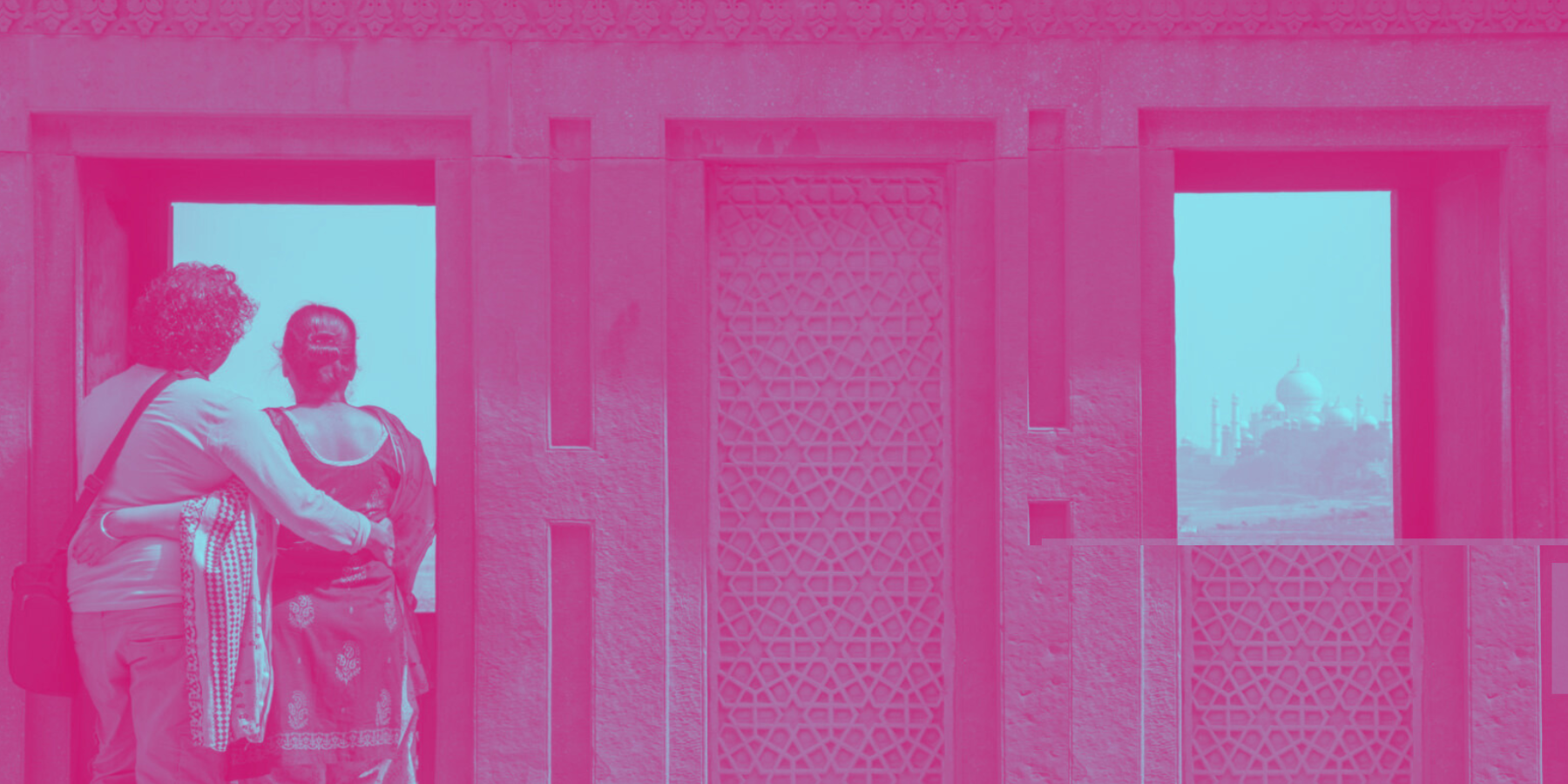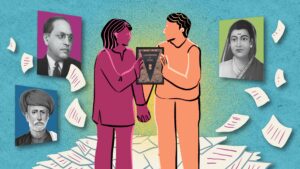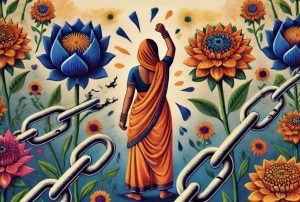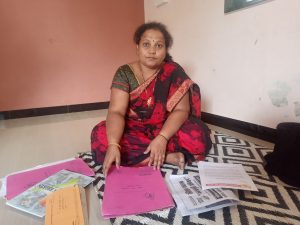Love Should Be A Radical Tool Of Rebellion Against Caste
A trainer who works with marginalised youth groups believes that Dalit women in intercaste relationships do not get the respect they deserve
- Deepa Pawar

Nikita (name changed) is a bright young woman studying to be a journalist. She is a Dalit from a migrant family that moved to a semi-rural suburb near Mumbai for employment. The family lives in a rented room.
Nikita, who experienced abuse in her childhood, joined a youth club in her village where young people come together and work for social change. She went for an overnight camp with members of this club, including some young men from the oppressor castes. During a game of ‘Truth and Dare’, they had to “propose” to Nikita.
A lot of young men thus sent messages to her well past midnight, “proposing” to her. Disturbed by these messages, she struggled with her exams the next day. She blamed herself for the situation, her behaviour, the way she dressed or talked.
I have been working as a trainer for over two decades with young people from diverse marginalised backgrounds — nomadic and denotified tribes (NT-DNT), Adivasi, rural, migrant and LGBTIQ – in communities, colleges and ashram shalas. I hold capacity building sessions, focus group discussions and camps on gender, body literacy, love and relationships, constitutional rights and so on. During these sessions, women participants have spoken to me of their experience of intimate relationships with dominant caste men.
Nikita too shared her story with me. She has heard similar stories from other girls in her group when she discusses issues of love, romance, relationships, sexuality, sexual reproductive health and mental health with them. A clear pattern emerged in these shared experiences – romance is often used as a tool to harass young women from marginalised castes who are educated and employed and participate confidently in public life.
I firmly believe that love is a radically political tool of rebellion – it speaks truth to power, and is beyond biases of caste, gender and religion. As BR Ambedkar strongly stated, he is “convinced that the real remedy is intermarriage” for “killing the spirit of caste and the consciousness of caste”. However, he has also said that “the relationship between husband and wife should be one of closest friends.” The same principle may be applied to romantic relationships.
I work closely with young people in Maharashtra, and have observed that young men, especially those from dominant and privileged castes, have little training in equal romantic relationships. Secondly, many of them seem to take the dignity and personhood of young Dalit women very lightly. As Nikita asked during one of our sessions: “What they did with me, the frivolous manner in which they literally played with my emotions and thoughts, would it have been so easy to disrespect and harass a girl from a dominant caste who also lives in our village? They would have feared the repercussions and would have never dared to take her for granted.”
Relationships are also a site of power where inequalities between the two partners play out — especially when the male, already wielding skewed gender power, is from a dominant caste. If the dominant partner is not aware of his own privilege, and is not committed and sensitive to the dignity of his partner, then instances of emotional exploitation increase. This violence also remains private.
Another case I came across was of a young Dalit woman, Akshata (name changed), from a rural area. She was living alone in a PG facility in her village to pursue a college degree since her family home was riddled with domestic violence. This meant earning enough to support her family as well as pay her own rent and college fees. Akshata met a young man of a dominant caste in her village and entered into a relationship with him. He was aware of her vulnerability. They were in love and shared emotional, intellectual and physical intimacy.
When it came to marriage, he would maintain that his family knew of her and they would remain together. But after three years, he told her that his family would not allow them to marry. It could be said this was a relationship of equals – both were earning and the relationship was consensual. But Akshata’s gender and caste location must be taken into account when considering the impact of such a break-up.
For a young woman from a rural and Dalit background charting an independent life and dreaming of a corporate career took a lot of courage. For her entering into an intimate relationship without a long-term commitment was unimaginable. The break-up led to a huge mental and emotional breakdown and even, an attempted suicide, while he remained mostly unscathed because of his social privileges. She was going to be held accountable for the break up and the loss of dignity would be immense and hurtful, jeopardising her considerable achievements.
So, what kind of responsibility was Akshata’s lover ready to take for these consequences? Do young men make the effort to understand the vulnerable gender, caste and financial locations of the young women with whom they are in a relationship? It may not be easy for them to stand up against the caste bias of their families, but are they even aware of the acute vulnerabilities of their partners?
These experiences are also faced by women from upper castes, but their situation is different. In the case of Dalit women, there is no support network of friends and family. Their families are struggling to access just basic needs. Secondly, they are the first generation to have left homes to study in colleges and set an example for their entire communities. What sort of message does this breakup and consequent indignity send out to families hoping for a better future for their daughters?
I wish to assert here that the masculinities in the above cases are not just regressive, they are also Brahmanical and casteist. These young men’s families own land, have political power, and have social clout.
regressive Masculinities
In another case, a young man in love with a Dalit woman was scolded by his family for crossing the caste barrier, and allegations were made about her ‘character’, ‘motives’, ‘upbringing’, ‘values’ and so on. How had she imagined that she would be worthy of their son, instead of not “controlling herself”? These discussions took place publicly, in front of their friends and family, in the same village where the young woman’s family lived. This woman is the daughter of a single mother, a migrant Dalit woman living in a rented accommodation.
The sympathies of the entire village lay with the man, and after a while even started blaming the young woman for the decisions that they had taken as a couple. The character assassination derailed her education and career preparation – she is training to enter the police force which is a male-dominated profession. The young man, after a while, continued to perform and thrive in his friendships, education, and social life.
For a man to not take a stance in an unequal relationship like this is hugely damaging for a woman. An Ambedkarite young woman I know was starting out in activism working with an older man activist from a dominant caste. The rest of the community gossiped about the relationship and her family was furious. The man’s family further vilified her in public. The woman was disturbed, and started doubting her own actions. She dropped out of social activities for more than a year which impacted her rise as an activist. The man did not deny the rumours and she now thinks he may have had feelings for her. By refusing to take a stand the man did her wrong because he is protected by the protective net of his caste and community.
Seema (name changed) belongs to a nomadic tribe, and lived with her migrant family in a rented room in a village. She and a young man in her village, both part of progressive spaces, met and fell in love. When the caste barrier proved too tough to challenge they broke up but the young man started keeping tabs on the other men she befriended and then started badmouthing her to them. Showing great courage and resilience, Seema protected her mental health and social reputation and sought a liberal man within her caste to marry. But she still lived for months in anxiety.
Lasting Injuries
All these stories are about Dalit women who have stepped out of their world to build a new life for themselves. They are also about male romantic partners who showed no responsibility or concern for the women, more vulnerable for their caste, when they ended a relationship.
Many of these young women, during training sessions with me, said that the men seemed to have taken their consent for granted. This consent they said was to be loved and cared for despite gender and caste norms. The men, on the other hand, appear to have assumed that when they ran into the caste hurdle they also had the consent to walk out without taking cognisance of the women’s emotional and mental health, by manipulating their trust, weaponising their knowledge about gender inequality, harassing them, and exploiting their intellectual and emotional labour.
In Nikita’s case, the young men carried out the dare on a Dalit woman, and instead of showing remorse or shame or fear when she confronted them, turned the blame on her. What did she think of herself, they asked, to imagine that they would be interested in her?
I have observed that these incidents change the very personality of these women, impacting their bodies, and leading to mood swings that turn vivacious youngsters into quiet shells.
These are young women who are challenging hundreds of years of caste and gender norms to get a good education, find modern careers and participate in social change, all this despite opposition. Many of them also identify as Ambedkarite activists, not very well known but emotionally connected to the Shahu-Phule-Ambedkar movement and its values.
They are from interior, neglected regions and Adivasi pockets, first generation college and university studnets and activists. In the spaces of intellectual, cultural, social and political discourse-building they occupy, they hear modern and progressive proclamations of anti-casteism, women’s equality, democracy, and so on. Unfortunately, there are enough case studies to show that they do not see these ideas play out in their intimate relationships. The dominance, rejection, exploitation, gaslighting and even abuse and violence they face from their more privileged male partners, is not only violative of consent but also the constitutional idea of equality in relationships.
The experiences I discussed cannot be shared by these women in their friend circles, and are connected with feelings of guilt and shame. And they can cause lasting emotional injuries to one’s sense of self worth. It also impacts their contribution to the movement, and their development and performance as leaders, activists, thought-leaders, academics, researchers, and intellectuals. It endangers their and their families’ potential, capacities, struggles, sacrifices, and the labour put in by generations of Dalit-Bahujan-Adivasi women.
Right to Dignity
These are not rare experiences and that fact is contributing to a larger culture of regressive and casteist masculinity. This must be challenged, and to do so, these stories must be told, documented, the Brahmanical Manuvadi politics that silences these women actively broken.
Firstly, patriarchy has created a system where consent is easily manipulated and not just in the context of sexual relationships. Women are rarely asked about their likes or dislikes on a range of issues – food, clothes, education, mobility, career, finances, politics, marriage, pregnancy, abortion, leisure and so on. By association, women’s privacy, dignity, confidentiality, mental health, and identity are also taken for granted. This is compounded in the case of Dalit, Adivasi, NT-DNT women.
I belong to the Ghisadi Nomadic & Denotified Tribe (NT-DNT) and have lived experiences of criminalisation, extreme poverty, homelessness, discrimination, violence, social insecurity as a young woman. I grew up in a tent on the outskirts of a Mumbai basti for 30 years. My community is so marginalised it has hardly any exposure to movements or progressive ideas. My own struggles to attain higher education and reach intellectual and ideological spaces have perhaps allowed me to build connections with the young women I work with.
I believe that the personal is always political, and every institution and platform where young people gather — and explore relationships with each other — must work on breaking the kind of cultural and social training that encourages regressive and casteist masculinity in young men of dominant castes. Through policies, guidelines, training and everyday practices they should also create an environment where young women do not hesitate to share their experiences and can seek help without fear.
When dominant caste men enter emotional and sexual relationships with Dalit women only to reject them as members of their homes and families, is it not a form of untouchability?
I believe that we only need to look to the Shahu-Phule-Ambedkar movement and its history, which already has great examples of equal and loving relationships. For example, Basavanna carried out the first inter-caste marriage in Karnataka as far back as the 12th century. Babasaheb Ambedkar and Ramabai’s relationship can teach us a lot about equality, emotional support, mental understanding, and intellectual respect. There is also, the beautiful relationship between Savitribai Phule and Jyotiba Phule, where each considered the other a capable leader.
While the case studies shared by the young Dalit, NT-DNT women show rejection, disrespect and isolation, these examples show us the path to building relationships grounded in constitutional ethics.
We believe everyone deserves equal access to accurate news. Support from our readers enables us to keep our journalism open and free for everyone, all over the world.




